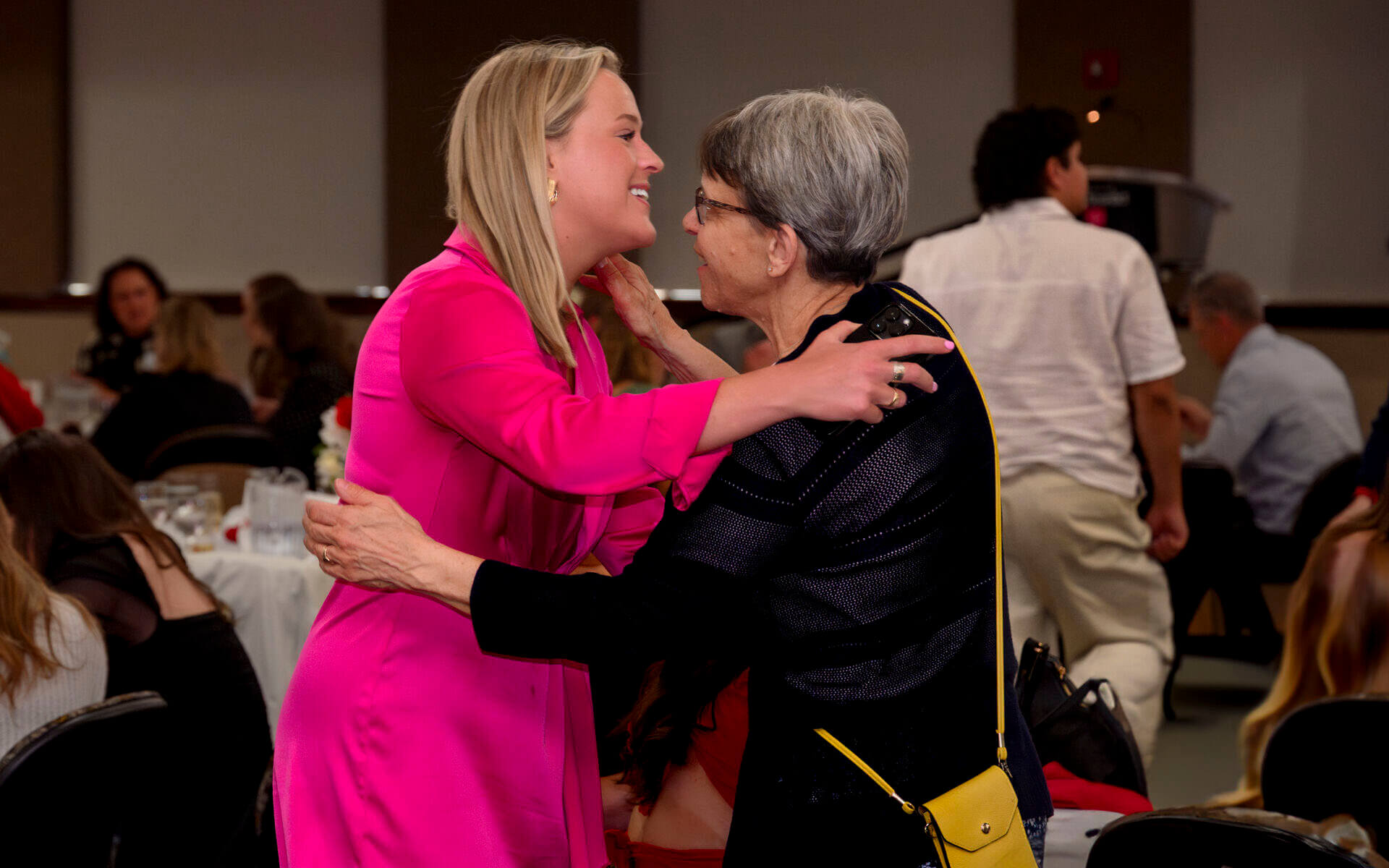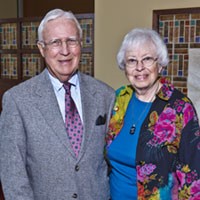Gifts that pay you back
Transfer securities, cash or other property to the College of Saint Benedict and we’ll manage the investment of the assets and pay an income to you, your designated beneficiaries or both. Receive payments for the rest of your life or, in some cases, up to a certain number of years.
Charitable gift annuities
If you’re looking for a way to maintain your current lifestyle, increase your financial security and lower your taxes, consider creating a charitable gift annuity. You will receive fixed annual payments for as long as you live. If you are under 65, you may want to consider a Deferred Charitable Gift Annuity, where payouts start after you hit a certain age.
Benefits
- Receive an immediate income tax deduction for a portion of your gift
- Annuity payments are guaranteed for life, backed by a reserve and the assets of our organization
- Annuity payments are partially tax free, making them more valuable than fully taxable income of the same size
How it works
- Transfer cash or securities to our organization.
- We pay you (or up to two annuitants) fixed income for life. The amount depends on the size of the transfer and how old you (or the other annuitants) are.
- The remaining funds pass to us when the contract ends, creating a meaningful impact.
Consult with a qualified estate planning attorney and a financial advisor to determine if this is the right option for you.
Charitable remainder trusts
A Charitable Remainder Trust (CRT) is a popular planned giving tool that allows donors like you to make a significant charitable impact while also providing financial benefits to themselves or their beneficiaries. This type of trust is an irrevocable arrangement in which a donor transfers assets into a trust that pays income to designated beneficiaries for a set number of years or for their lifetime, after which the remaining assets are distributed to one or more charitable organizations.
There are two types of Charitable Remainder Trusts:
Charitable Remainder Annuity Trust (CRAT):
Fixed income stream based on a percentage of the initial asset value
Income stream does not change over time
Charitable Remainder Unitrust (CRUT):
Variable income stream based on a percentage of the trust’s value, revalued annually
If assets appreciate over time, the income stream will also increase
Who it’s for
- Those who want to make a significant charitable gift while still retaining an income stream from their assets
- Those who want to reduce or eliminate their capital gains taxes on appreciated assets
- Those who want to provide for themselves, their spouse or other beneficiaries
Benefits
- Reduce or eliminate capital gains taxes
- Retain an income stream for yourself or beneficiaries
- Create a lasting legacy that supports our mission
How it works
- Transfer assets (such as cash, securities or real estate) into a trust, which is managed by a trustee.
- The trust pays income to designated beneficiaries (such as you, your spouse or other individuals) for a set number of years or for their lifetime.
- At the end of the trust term, the remaining assets are distributed to one or more charitable organizations.
- Receive an income tax deduction for the present value of the charitable remainder interest in the trust.
- You may also be able to avoid or reduce capital gains taxes on appreciated assets that are transferred into the trust.
Consult with a qualified estate planning attorney and a financial advisor to determine if this is the right option for you.
Charitable lead trusts
A Charitable Lead Trust is a type of trust that allows you to make a charitable gift while retaining some control over the assets during your lifetime. This type of trust makes annual payments to a charity for a set number of years, after which the remaining assets are distributed to non-charitable beneficiaries that you choose (many people choose their family members).
Who it’s for
- Those who want to retain some control over the assets during their lifetime
- Those who want to provide for non-charitable beneficiaries, such as family members, after the charitable period ends
- Those with significant assets and who want to reduce their estate tax liability
Benefits
- Receive an immediate income tax deduction for the value of your contributions
- Retain some control over the assets donated
- Provide for your family’s financial security
- Create a lasting legacy that supports our mission
How it works
- Create a trust and fund it with assets, such as cash, securities or real estate.
- The trust makes annual payments to us for a set number of years, based on a predetermined formula or percentage of the trust assets.
- At the end of the charitable period, the remaining assets are distributed to non-charitable beneficiaries, chosen by you, such as your family members.
- Receive an immediate tax deduction for the present value of the charitable payments made by the trust.
Consult with a qualified estate planning attorney and a financial advisor to determine if this is the right option for you.
You can impact future generations
Generosity comes in many forms, and it’s often the best way for you to support important causes that matter the most in your life. When you give to the College of Saint Benedict, you help us make a difference.


Ardeth Harth Duthoy ’52 and Everette “Ev” Duthoy ’52’s story
Ardeth (Harth) and Everette “Ev” Duthoy are keen to make solid investment choices. That inclination translates to their commitments to the annual and endowment funds at the College of Saint Benedict, where they believe students not only receive a good education but “instructions for a good life.”
Read moreWe’re here to help you meet your goals!
Our team would be happy to speak with you in confidence about your giving goals with no obligation.
Name: College of Saint Benedict Planned Giving Office
Title :Tara Maas Tessmer ’14
Schoenecker Commons
37 South College Avenue
St. Joseph, MN 56374
Phone: 320-363-5307
Email: csbplannedgiving@csbsju.edu
Already included us in your estate plan? Let us know
More ways to make an impact
Gifts in a will or trust
Donations in your will or trust are (by far) the most popular type of planned gift. Establishing a will or a trust allows you to plan for the future and take care of the people and causes that you care most about.
Beneficiary designations
Gifting assets not covered by your will — like 401(k) or IRA accounts — may help your heirs avoid unwanted taxes, even if you’re below the estate tax threshold.
Popular tax-smart gifts
Many people are increasingly choosing to give non-cash assets, so they can have a bigger impact at less cost to them.